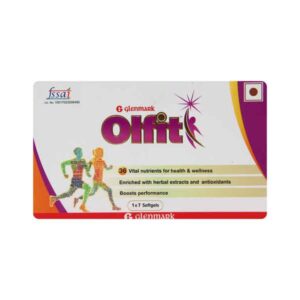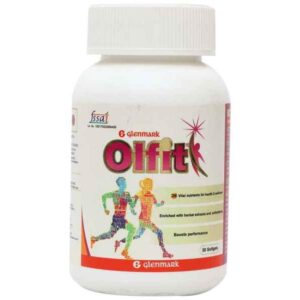PHOSPHOROUS + CITRUS BIO-FLAVONOLD COMPOUND + ALPHALIPOIC ACID + VITAMIN C AND E + GRAPE SEED EXTRACT + INOSITOL NICOTINATE TAB + FLAXSEED OIL CAP + GREEN TEA CAP
Phosphorous: I’m sorry, but there is no drug named “Phosphorous.” Phosphorus is a chemical element that is essential for various biological processes in the body, but it is not used as a standalone drug. If you are referring to a specific medication or have any other queries, please let me know!
Citrus Bio-Flavonold Compound: I’m sorry, but I could not find any information about a drug called “Citrus Bio-Flavonold Compound.” It is possible that this specific drug is not well-known or widely used, or it may not be a recognized drug by healthcare authorities. It is always important to consult a healthcare professional or pharmacist for accurate and reliable information about any medication.
Alphalipoic Acid: Drug: Alphalipoic Acid
Use:
Alphalipoic Acid is a dietary supplement and antioxidant that is used in the treatment of certain health conditions. It is primarily used as a complementary therapy for managing diabetic neuropathy and reducing symptoms associated with peripheral neuropathy. It may also have potential benefits for other conditions such as diabetes, cardiovascular disease, and liver disease.
Mechanism of Action:
Alphalipoic Acid works as a potent antioxidant by neutralizing free radicals in the body, which are unstable molecules that can cause damage to cells and tissues. It helps regenerate other antioxidants like vitamin C and vitamin E, making them more effective in combating oxidative stress. Additionally, Alphalipoic Acid enhances insulin sensitivity, leading to improved glucose utilization.
Dose:
The appropriate dose of Alphalipoic Acid can vary depending on the specific health condition being treated. Generally, a typical daily dose ranges from 300 to 600 mg, divided into two or three equal doses. It is available in tablet, capsule, and liquid forms. It is important to follow the instructions on the product label or consult a healthcare professional for the correct dosage and duration of use.
Side Effects:
Alphalipoic Acid is generally considered safe when taken within the recommended dosage range. However, like any medication, it may cause some side effects. Common side effects can include gastrointestinal symptoms such as stomach upset, nausea, and vomiting. Rarely, allergic reactions like skin rash or itching may occur.
Since Alphalipoic Acid can lower blood sugar levels, it is important for people with diabetes to closely monitor their blood sugar levels while taking this supplement to avoid hypoglycemia. It may also interact with certain medications, such as chemotherapy drugs, and people taking such medications should consult their healthcare provider before starting Alphalipoic Acid.
Overall, Alphalipoic Acid is generally well-tolerated and may provide benefits for individuals with specific health conditions. However, it is always important to consult a healthcare professional before starting any new medication or supplement, as they can provide personalized guidance based on individual needs and medical history.
Vitamin C And E: Drug: Vitamin C and E
Use: Vitamin C (ascorbic acid) and Vitamin E (alpha-tocopherol) are dietary supplements that are often taken together for their antioxidant properties and potential health benefits. They are used to support overall health, boost immunity, and protect against cellular damage caused by free radicals.
Mechanism of Action: Vitamin C acts as an antioxidant by scavenging and neutralizing harmful free radicals. It also plays a crucial role in collagen synthesis, iron absorption, and immune function. Vitamin E, on the other hand, protects cell membranes from oxidative damage and works synergistically with vitamin C to enhance its antioxidant effects.
Dose: The recommended daily dosage of Vitamin C varies from person to person, but in general, it ranges from 75-2000 mg per day. For Vitamin E, the recommended dosage is typically around 15-400 IU (international units) per day. It is important to consult a healthcare professional to determine the appropriate dosage based on individual needs.
Side Effects: Vitamin C is generally safe when taken within the recommended dosage. High doses of Vitamin C may cause digestive upset, diarrhea, or in rare cases, kidney stones. Vitamin E is also safe when taken at the recommended dosage. However, high doses of vitamin E can increase the risk of bleeding and may interact with certain medications, such as blood thinners.
It is important to note that while taking vitamin C and E supplements can be beneficial for some individuals, a balanced diet rich in fruits, vegetables, and whole grains is usually the best source of these vitamins. It is always recommended to consult with a healthcare professional before starting any new dietary supplement.
Grape Seed Extract: Drug Name: Grape Seed Extract
Use: Grape seed extract is a dietary supplement derived from the seeds of grapes. It is often used as a natural remedy for various health conditions.
Mechanism of Action: Grape seed extract is rich in antioxidants, such as proanthocyanidins, which have been shown to help protect cells from oxidative damage. These antioxidants also have anti-inflammatory properties and may help improve blood flow and strengthen blood vessel walls.
Dose: The dose of grape seed extract can vary depending on the specific product and the condition being treated. However, a commonly recommended dose is 100-300 milligrams per day.
Side Effects: Grape seed extract is generally considered safe for most people when taken in appropriate doses. However, it can cause mild side effects in some individuals. These may include headache, dizziness, nausea, and an itchy scalp. In rare cases, allergic reactions have been reported. It is always recommended to consult a healthcare professional before starting any new supplement to ensure it is appropriate for your individual health needs.
Inositol Nicotinate Tab: Inositol Nicotinate Tab, also known as myo-inositol hexanicotinate, is a medication primarily used as a vasodilator for the treatment of circulatory disorders. It is a combination of inositol and niacin (vitamin B3).
The primary mechanism of action of Inositol Nicotinate Tab is the release of niacin and inositol in the body. Niacin is a vasodilator that helps widen blood vessels, allowing for improved blood flow. Inositol is a sugar-like substance that supports healthy cell membranes and plays a role in various cellular functions.
Inositol Nicotinate Tab is commonly prescribed for conditions such as intermittent claudication (painful cramping in the legs due to poor circulation), peripheral vascular disease, and Raynaud’s disease (a condition causing vasospasms in the extremities).
The typical recommended dose of Inositol Nicotinate Tab varies depending on the condition being treated. For intermittent claudication, a common starting dose is 500-1000 mg taken 3 times daily. However, the dosage may be adjusted by a healthcare professional based on individual needs.
Like any medication, Inositol Nicotinate Tab can have side effects. Some common side effects may include flushing, warmth, tingling, itching, and mild dizziness. These effects are usually temporary and diminish with continued use. However, if these side effects persist or worsen, it is important to consult a healthcare professional.
In rare cases, severe allergic reactions may occur, including rash, itching, swelling, severe dizziness, or trouble breathing. If any of these symptoms occur, immediate medical attention should be sought.
It is important to note that Inositol Nicotinate Tab should be used under the guidance of a healthcare professional, as they will determine the appropriate dosage and duration of treatment based on an individual’s specific condition and response to the medication.
Flaxseed Oil Cap: Flaxseed oil is a dietary supplement that is derived from the seeds of the flax plant (Linum usitatissimum). It is commonly available in the form of capsules, known as Flaxseed Oil Caps.
Flaxseed oil is primarily used as a source of Omega-3 fatty acids, specifically alpha-linolenic acid (ALA). Omega-3 fatty acids are essential nutrients that play a crucial role in maintaining overall health. They have been shown to have anti-inflammatory effects, promote cardiovascular health, improve cognitive function, and support healthy skin.
The mechanism of action of flaxseed oil is related to its high content of ALA. Once ingested, ALA is converted by the body into other Omega-3 fatty acids, namely eicosapentaenoic acid (EPA) and docosahexaenoic acid (DHA). These fatty acids are further metabolized and incorporated into cell membranes, where they exert their beneficial effects.
The recommended dose of flaxseed oil capsules varies depending on the brand and concentration of the product. However, a common recommendation is to take 1-2 capsules (each containing 1000 mg) with meals, one to three times daily. It is essential to follow the instructions provided on the product packaging or consult a healthcare professional for personalized dosing guidance.
Flaxseed oil is generally well-tolerated, but some individuals may experience mild side effects. These can include gastrointestinal issues like bloating, diarrhea, or stomach discomfort. In rare cases, allergic reactions may occur, indicated by symptoms such as rash, itching, or swelling. If any severe side effects occur, it is important to discontinue use and seek medical attention.
Flaxseed oil may interact with certain medications like blood thinners or anticoagulants, and hence, it is advisable to consult a healthcare professional before starting supplementation, especially if you have any underlying medical conditions or are taking prescription medications.
Overall, flaxseed oil in capsule form is a convenient way to obtain Omega-3 fatty acids, but it is essential to follow recommended dosages and seek medical advice to ensure safe and effective use.
Green Tea Cap: Green Tea Cap is a medication that contains an extract of green tea leaves (Camellia sinensis) as its active ingredient. It is typically used as a dietary supplement in the form of a capsule.
Green tea has been consumed for centuries and is known for its potential health benefits. It is believed to have antioxidant properties, as it contains compounds called catechins and flavonoids. These antioxidants help protect cells from damage caused by harmful free radicals in the body.
The mechanism of action of Green Tea Cap is not fully understood, but it is thought to work through multiple pathways. The main active component, epigallocatechin gallate (EGCG), may contribute to its antioxidant effects. Additionally, it has been suggested that green tea extract may affect metabolism, fat oxidation, and energy expenditure, potentially aiding in weight loss.
The recommended dose of Green Tea Cap can vary depending on the manufacturer and the specific product. It is important to follow the instructions provided on the packaging or as directed by a healthcare professional. Generally, the typical daily dose ranges from 250 to 500 mg, divided into two or three doses.
As a dietary supplement, Green Tea Cap is generally well-tolerated. However, it can still have potential side effects. These may include:
1. Gastrointestinal symptoms: Nausea, stomach upset, diarrhea, or constipation may occur in some individuals.
2. Caffeine-related effects: Green tea naturally contains caffeine, so high doses or sensitivity to caffeine can cause symptoms such as increased heart rate, anxiety, restlessness, or difficulty sleeping.
3. Liver toxicity: Although rare, there have been reports of liver toxicity associated with high doses or prolonged use of green tea extract.
4. Interactions: Green tea extract may interact with certain medications, such as anticoagulants or drugs processed by the liver. It is important to consult a healthcare professional before starting this supplement if taking any other medications.
It is worth noting that the use of dietary supplements, including Green Tea Cap, should be discussed with a healthcare professional, especially if you have any underlying medical conditions or are taking other medications. They can provide personalized guidance based on your specific needs and help monitor for any potential interactions or side effects.


